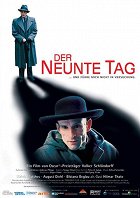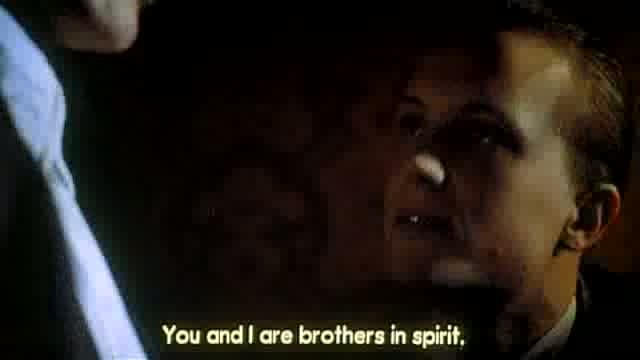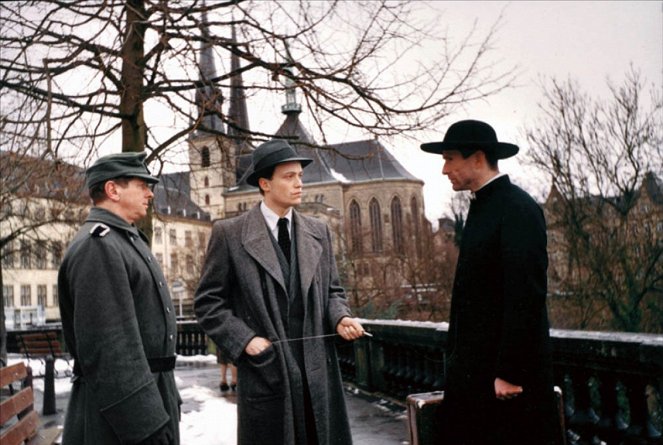Rendező:
Volker SchlöndorffOperatőr:
Tomas ErhartZeneszerző:
Alfred SchnittkeSzereplők:
Ulrich Matthes, August Diehl, Hilmar Thate, Bibiana Beglau, Ivan Jiřík, Adolf Filip, Zdeněk Pecháček, Karel Dobrý, Vladimír Fišer, Petr Janiš (több)Tartalmak(1)
A megtörtént esetet feldolgozó filmben André atyát, a luxemburgi papot a náci megszállók Dachauba hurcolják, majd kilenc napra kiengedik azzal a "feladattal", hogy a katolikus egyház vezetőit a nácik oldalára állítsa. Cserébe szabadságot, családja és fogolytársai megmenekülését ígérik. A szabadság kilenc napja alatt minden nap jelentkeznie kell a fiatal, karizmatikus Gestapo főnöknél, Gebhardtnál, akinek hideg precizitással megfogalmazott érvei kísértésbe hozzák és elbizonytalanítják. Kilenc hosszú napon át folyik a szellemi párbaj. Az abbénak az utolsó napon döntenie kell, hogy melyik oldalon áll. (Best Hollywood)
(több)Videók (1)
Recenziók (2)
A raw and intense story about a Luxembourg priest during and outside of a concentration camp. What I really appreciated was how the film doesn’t hold back—it dives deep into philosophical questions about faith, from top to bottom. Different people, different perspectives, and in wartime, those opinions can be pretty extreme, which left me thinking about the film long after it ended. Ulrich Matthes delivers an outstanding performance, and I totally believed the fear in his eyes in almost every other scene. If I were in the shoes of the real person this story is based on, I don’t think I would’ve lasted those nine days. The film captures the grim war atmosphere perfectly and moves at a solid pace. I’m surprised it’s not more well-known.
()
I've seen quite a few films about Nazis and extermination camps, but this one is special. The sad story of Abbé Henry Kremer shows the atrocities of the Second World War from the perspective of the Church. Dealing with philosophical questions of faith, conscience, and betrayal, Ulrich Matthes was undoubtedly a good choice for the role of a man who does not succumb to pressure and keeps his composure even when he is realistically threatened with death. The character of the young Gestapo officer Gebhardt is certainly intriguing, with his non-black-and-white nature, portrayed excellently by August Diehl. I cannot forget about the Czech mark left on the film by Karel Dobrý. In the small space of the commander of the Dachau concentration camp, he was so strongly etched in my memory that at times I felt as if he had perhaps been born an SS man. The Ninth Day is not a pleasant film to watch, but it will make you think about how you would act in a given situation. (80%)
()




Hirdetés